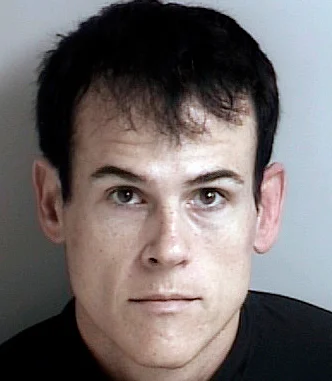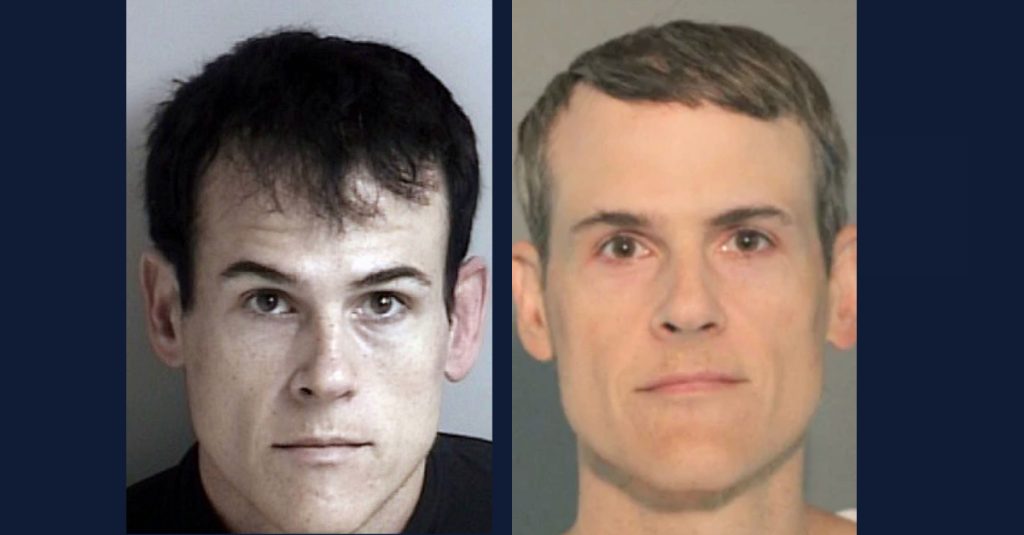Where is Matthew Muller, the Focus of American Nightmare, Today?
Matthew D. Muller, the disbarred attorney whose chilling kidnapping of Denise Huskins in 2015 is explored in the Netflix docuseries American Nightmare, is currently serving a 40-year prison sentence for his crimes. This gripping true crime story details the horrifying events that unfolded in Vallejo, California, as Muller orchestrated a night of terror for Huskins and her boyfriend, Aaron Quinn.
Who is Matthew Muller?
Matthew D. Muller, born on April 27, 1977, in California, had a childhood marked by an eagerness to learn and a drive to succeed. Raised in a supportive suburban environment, he was the product of a family that valued education and hard work. Growing up, he enjoyed a typical childhood, engaging in various sports and activities that helped shape his character and build friendships.
Muller demonstrated academic promise from an early age, often excelling in his studies. His parents encouraged him to pursue his interests, which included reading and exploring the world of ideas. This strong foundation in education laid the groundwork for his future endeavors. He was involved in extracurricular activities during high school, where he not only honed his academic skills but also developed leadership qualities and a sense of responsibility. His participation in debate club and student government helped him gain confidence in public speaking and critical thinking, essential skills for his later career.
After graduating high school with commendable grades, Muller enlisted in the U.S. Marine Corps, serving from 1995 to 1999. This period of service significantly influenced his life, instilling discipline, resilience, and a profound sense of duty. However, the stresses associated with military life began to take a toll on his mental health. The transition from the structured military environment back to civilian life was challenging, and he began experiencing symptoms of anxiety and depression. These mental health issues were compounded by the high-pressure environment of the Marines, where emotional vulnerabilities were often stigmatized.
Despite these struggles, Muller pursued higher education, attending Harvard University, where he graduated with a law degree in 2006. His time at Harvard further developed his analytical skills and deepened his understanding of the law and its implications in society. While he achieved academic success, his mental health issues persisted. Reports indicate that he grappled with feelings of isolation and inadequacy, leading to increased anxiety and bouts of severe depression. He sought therapy to cope with these emotional challenges, which became a significant part of his adult life.
Following his graduation, Muller began his professional journey as an immigration lawyer based in San Francisco. His education and military background equipped him with a unique perspective on legal issues, particularly those affecting vulnerable populations. He worked diligently to advocate for his clients, aiming to make a positive impact in their lives.
Muller’s early years were characterized by ambition and a strong educational foundation, but they were also marked by the emerging challenges of mental illness. His journey reflects a complex interplay of promise and potential, underscoring the importance of background and upbringing in shaping one’s path in life. As he navigated the pressures of his career and personal life, the impact of his mental health became increasingly significant. His experience highlights the need for understanding and support in addressing mental health issues, especially among those who have faced high-stress environments like the military and the demanding nature of legal work.
The Chilling Kidnapping
On March 23, 2015, during the early hours of the morning, Muller broke into Huskins’ home in Mare Island, Vallejo. Armed with a stun gun and a fake firearm, he brutally restrained both victims, forcing them to the ground. Using dark swim goggles, he blindfolded them and administered a sedative while playing a recorded message that warned of dire consequences if they did not comply with his demands.
After subduing the couple, Muller abducted Huskins, placing her in the trunk of his car and driving her to his residence in South Lake Tahoe. Over the next two days, he held her captive, demanding a ransom of $17,000 while subjecting her to horrific sexual assaults. Despite his threats and torment, Huskins was ultimately released in Huntington Beach without any ransom being paid, a detail that would later confuse and frustrate law enforcement officials as they struggled to understand the motives behind the crime.
Related: The Denise Huskins Case: A Timeline of Events and a Fight for Justice
Law Enforcement's Initial Response
Initially, the Vallejo Police Department mishandled the investigation, implying that Quinn and Huskins had staged the abduction. Officers interrogated Quinn for hours, questioning his involvement in the incident and suggesting that he may have played a role in his girlfriend’s disappearance. The police stated, “There is no evidence to support the claims that this was a stranger abduction or an abduction at all.” This narrative led to public outrage as investigators faced scrutiny for their lack of proper investigation and victim support, particularly as details of Huskins' ordeal began to emerge.
The police's premature conclusions about the case not only put additional strain on Huskins and Quinn, who were already reeling from the traumatic experience, but also delayed the investigation into the real perpetrator. The pressure mounted on the Vallejo Police Department as the public called for accountability and a more thorough investigation into the actual events of that fateful night.
The Arrest of Matthew Muller
The case remained unresolved until June 8, 2015, when Dublin Police Services arrested Muller for a separate home invasion, during which he attempted to kidnap a couple's daughter. This marked a turning point in the investigation, as investigators discovered a cellphone at the scene that was connected to Muller, prompting further investigation into his involvement with Huskins' kidnapping.
Following this arrest, authorities conducted a search of Muller’s properties in South Lake Tahoe and uncovered evidence linking him directly to the crime against Huskins. This included recordings that matched the threats made during her abduction and other incriminating materials that would ultimately solidify his guilt. In September 2015, Muller pleaded guilty to one count of kidnapping, and in 2022, he entered a no contest plea to two counts of forcible rape, solidifying the horrific nature of his actions.

When was Matthew Muller sentenced?
In 2017, U.S. District Judge Troy L. Nunley sentenced Muller to 40 years in prison for the kidnapping of Huskins. During the sentencing, Judge Nunley expressed the profound impact of Muller’s actions, stating, “This sentence underscores the severity of Muller’s actions. Despite having opportunities in life that many can only aspire to, he chose to use his significant intelligence to orchestrate a brutal assault and inflict psychological torment on two innocent individuals.”
Muller’s defense attorney, Thomas Johnson, sought a 30-year term, citing Muller’s diagnoses of manic depression and the potential for rehabilitation. However, the court determined that the severity of Muller’s actions warranted a longer sentence, reflecting a growing acknowledgment of the lasting effects of such crimes on victims and their families. The judge emphasized the need to ensure that Muller would never have the chance to commit similar offenses again, sending a strong message about accountability in the justice system.
Where is Matthew Muller now?
As of now, Matthew Muller is incarcerated at the Federal Correctional Institution in Tucson, Arizona, with an expected release date of July 8, 2049. In a 2018 jailhouse interview with NBC Bay Area, Muller maintained his innocence, claiming he pleaded guilty out of sympathy for Huskins and Quinn. He criticized the Vallejo Police Department’s handling of the case, stating, “I don’t believe there’s any justification for how the Vallejo Police Department managed the situation,” which has raised further questions about his understanding of the gravity of his crimes.
Muller’s claims of innocence, despite his guilty pleas, highlight the complexities of criminal psychology and the ways in which perpetrators may attempt to deflect responsibility for their actions. His assertion of having acted out of sympathy further complicates the narrative, as it appears to minimize the severity of the trauma experienced by his victims.
The Impact of the Case
Muller’s story serves as a chilling reminder of the complexities surrounding crime, victimization, and the often flawed perceptions of law enforcement. The American Nightmare docuseries sheds light on this disturbing case, making it a significant topic for true crime enthusiasts and a poignant discussion about the impact of crime on individuals and communities.
The case also prompts critical discussions about the treatment of victims, the psychological ramifications of violent crime, and the responsibilities of law enforcement in protecting the vulnerable. The way this case unfolded reflects broader societal issues, including the need for improved training for police officers when dealing with victims of violent crime and the importance of listening to their accounts without bias.
The case of Matthew Muller and the kidnapping of Denise Huskins highlights critical issues within the criminal justice system, including the treatment of victims and the responsibilities of law enforcement. As viewers continue to engage with the American Nightmare series, the conversation around crime, accountability, and justice remains relevant, ensuring that the lessons learned from this case are not forgotten. It serves as a powerful reminder of the need for empathy and understanding in the face of horrific events, both for the victims and for those tasked with serving justice.





















